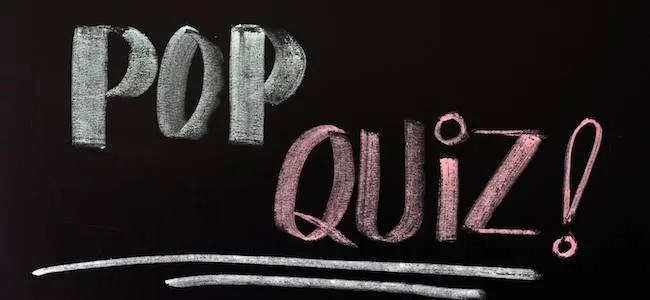
Classic or YA: Can You Tell the Difference?
How long will it take a newly established literary genre to lose its stigma? The world may never know. After several centuries, novels are finally considered respectable, but it’s still an uphill battle for many young adult authors. Your typical avid reader of YA has probably been counting disrespectful assumptions for years: that the books are just for kids, that they’re unserious, and worst of all (because unserious things for kids can still be pretty cool), that they’re poorly written.
So with the help of my lovely co-Rioter Kelly Jenson, I have created a quiz for YA readers and nonreaders alike. Can you tell which of the following quotes came from a recent YA novel, and which came from honest-to-goodness, officially respectable, canonized classics?
- 1. A “When I looked at my negatives once I’d developed them and hung them to dry, I saw each angle as a point of view. That was what a picture was, wasn’t it? A point of view? If you took a picture of a glass from above, it would look mostly empty. If you took it from below, it would look half full. A cliched example, but you understand. Everything we see is based on where we’re standing when we see it.”
- B “One of the many ways of contesting level-zero, and one of the best, is to take photographs, an activity in which one should start becoming an adept very early in life, teach it to children since it requires discipline, aesthetic education, a good eye and steady fingers. I’m not talking about waylaying the lie like any old reporter, snapping the stupid silhouette of the VIP leaving number 10 Downing Street, but in all the way when one is walking about with a camera, one has almost a duty to be attentive, to not lose that abrupt and happy rebound of sun’s rays off an old stone, or the pigtails-flying run of a small girl going home with a loaf of bread or a bottle of milk. Michel knew that the photographer always worked as a permutation of his personal way of seeing the world as other than the camera insidiously imposed on it…”
- 2. A “A good player who loses at chess is genuinely convinced that he has lost because of a mistake, and he looks for this mistake in the beginning of his game, but forgets that there were also mistakes at every step in the course of the game, that none of his moves was perfect. …How much more complex is the game of war, which takes place in certain conditions of time and where no single will is guiding lifeless mechanisms, but everything is the result of numberless collisions of various wills?”
- B “Have you ever asked yourself, do monsters make war, or does war make monsters?”
- 3. A “It is when we try to grapple with another man’s intimate need that we perceive how incomprehensible, wavering, and misty are the beings that share with us the sight of the stars and the warmth of the sun. It is as if loneliness were a hard and absolute condition of existence; the envelope of flesh and blood on which our eyes are fixed melts before the outstretched hand, and there remains only the capricious, unconsolable, and elusive spirit that no eye can follow, no hand can grasp.”
- B “You think that the world we live in is ordinary. We make noise and static to fill the empty spaces where ghosts live. We let other people grow our food, bleach our clothes. We seal ourselves in, clean the dirt from our skins, eat of animals whose blood does not stain our hands. We long ago left the ways of our ancestors, oracles and blood sacrifice, traffic with the spirit world, listening for the voices out of stones and trees. But maybe sometimes you have felt the uncanny, alone at night in a dark wood, or waiting by the edge of the ocean for the tide to come in. We have paved over the ancient world, but that does not mean we have erased it.”
- 4. A “I have hated words and I have loved them, and I hope I have made them right.”
- B “What is language for? What the hell is language for? We go round and round. I supposed I’m an old fool who cannot understand your modern ways.”
- 5. A “The only way out of the labyrinth of suffering is to forgive.”
- B “Trouble is so hard to bear, is it not? — How can we live and think that any one has trouble—piercing trouble—and we could help them, and never try?”














